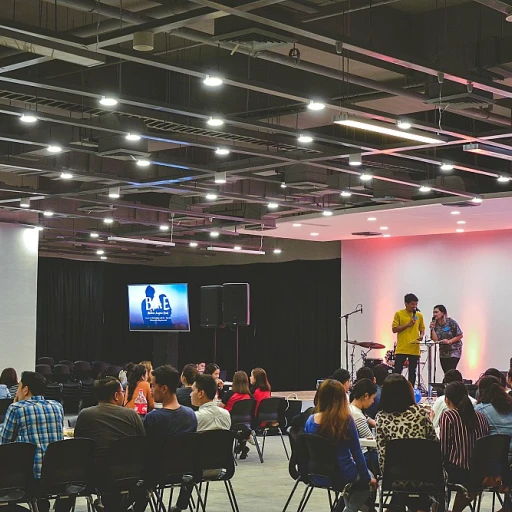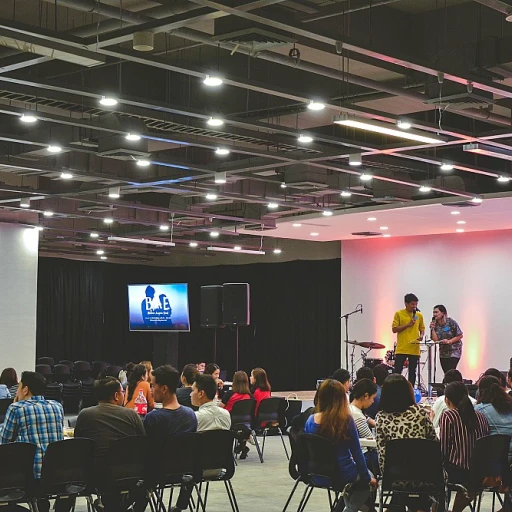
Understanding High Potential Employees
Recognizing the Characteristics of High Achievers
Identifying and nurturing high potential employees is crucial for any organization aiming to foster organizational performance and achieve strategic business outcomes. These employees demonstrate not only exceptional skills and abilities but also an inherent drive to exceed normal expectations, playing a pivotal role in shaping a productive organizational culture. Understanding what makes a high potential employee can significantly improve employee engagement and retention strategies. They often exhibit a willingness to take on additional responsibilities and show a keen interest in developing their professional skills. Moreover, their ability to influence positive change and adapt to new organizational strategies makes them invaluable assets in times of transformation. High potential individuals consistently contribute to creating positive employee experiences, enhancing both employee and customer experiences, thereby impacting the overall health of the organization. By fostering an environment that promotes employee experience, businesses can maximize the potential of these individuals, ultimately driving growth and improving customer service standards. In the competitive landscape of today’s business world, effectively managing high potential employees is a key element that can set an organization apart. Utilizing insights from experience consulting, organizations can tailor their approach to maximize the effectiveness of these employees by aligning their roles with strategic business goals, thereby ensuring sustained organizational growth. For a deeper dive into how understanding unregretted attrition and the characteristics of high potential employees can benefit your organization, feel free to explore further resources here.Challenges Faced by High Potential Employees
Overcoming Hurdles in the High Potential Journey
Being identified as a high potential employee often brings both opportunities and challenges. As organizations focus on leveraging these individuals to drive future success, understanding their unique challenges becomes crucial for any business determined to foster a thriving workplace. In this pursuit, experience and engagement emerge as pivotal factors affecting organizational performance.
Despite the promise of accelerated career development, these employees frequently face elevated expectations and responsibilities which can lead to significant pressure. This pressure, if not managed well, can result in burnout, adversely affecting both employee engagement and retention. It is crucial for organizations to recognize that their experience strategy should address such challenges proactively, ensuring employees feel supported and valued.
Additionally, the transition from an individual contributor to a leadership role can create its own set of challenges. Many high potentials encounter difficulties due to gaps in skills or an organizational culture that may not fully support change management. As organizations increasingly rely on experience consulting and technological solutions, tailoring coaching and mentoring programs becomes critical for maintaining a positive employee experience.
Moreover, high potential employees often find themselves stuck in a cycle where their capabilities are under-utilized due to poor alignment with the company’s strategic goals. Without the right management and development plans, these employees may struggle to see their career progression within the organization, potentially detracting from both employee experiences and business outcomes.
By recognizing these hurdles and integrating targeted consulting services, organizations can enhance their employee experience strategy. Driving cultural change and leveraging technology to create a supportive environment for high potentials will ultimately lead to improved organizational performance and customer experiences.
The Role of Employee Experience Consulting
The Importance of Experience Consulting for High Potential Employees
In today's rapidly evolving business landscape, the role of experience consulting is pivotal. Experience consultants play a crucial role in enhancing the workplace culture and retaining high potential employees. These professionals focus on optimizing employee experiences by refining organizational strategies and ensuring that high potential employees feel valued and engaged.
Experience consulting involves a blend of technology, management insights, and change management to foster a positive organizational culture. When organizations tailor their approaches to align with the unique needs of high potential employees, they can maximize employee retention and engagement. The seamless integration of customer experiences and employee experiences fosters a balanced environment where organizational performance can thrive.
How Consulting Services Elevate Employee Engagement
Consulting services provide businesses with structured frameworks and strategies to effectively manage their workforce. By adopting a robust experience strategy, businesses can develop personalized employee experiences that not only address the challenges faced by high potential employees but also boost overall business outcomes.
- Insights into Employee Needs: By conducting thorough assessments, experience consultants help organizations identify what truly drives their employees. This allows for customized approaches that enhance engagement and satisfaction.
- Strategic Experience Management: Experience consulting helps organizations handle dynamic workforce changes, leveraging tools to foster positive employee experiences and improve retention rates.
- Improving Organizational Culture: Consultants emphasize the importance of creating a culture that aligns with the values and aspirations of high potential employees. This alignment fosters loyalty and a more committed workforce.
A well-structured experience consulting program helps organizations harness the potential of their high performers, ensuring they remain engaged, motivated, and less likely to seek opportunities elsewhere. For more insights on how to best leverage high potential employees for competitive advantage in today's business environment, further resources are available.
Strategies for Enhancing Employee Experience
Proactive Approaches to Boosting Workplace Engagement
Enhancing the experience of high potential employees often requires a multi-faceted strategy, encompassing both organizational and personal development elements. To nurture these employees, let's explore key strategies that can significantly uplift their engagement and drive business outcomes.- Tailored Experience Strategies: By crafting personalized experience strategies, organizations can ensure that their high potential employees feel valued and understood. Experience consulting services can offer valuable insights, helping to design bespoke employee experiences that align with individual preferences and career aspirations.
- Leveraging Technology: Implementing modern technology can streamline processes and improve employee engagement. From advanced data analytics to intuitive platforms for feedback, technology aids in providing seamless, engaging, and effective work environments.
- Fostering a Positive Organizational Culture: An inclusive and supportive organizational culture is pivotal. This involves change management initiatives that promote a positive workplace atmosphere where high potential employees can thrive and contribute to organizational performance. Leadership must demonstrate commitment to developing a culture that values positive employee-staff relationships.
- Continuous Feedback and Development Programs: Establishing regular feedback loops allows employees to voice their experiences and feel heard. Coupled with continuous learning and development programs, employees receive the skills enhancement needed to assume greater roles within an organization.
- Executive-Level Involvement: Genuine engagement from the top is crucial. By involving executive leaders in employee experience initiatives, you can align strategies with broader business goals, thereby fostering a comprehensive organizational commitment.
Measuring Success in Employee Experience Initiatives
Assessing and Monitoring Success
Measuring the success of employee experience initiatives is crucial for organizations to ensure they are on the right path to fostering a positive organizational culture and achieving desired business outcomes. While the challenges high potential employees face can vary, tailoring the performance measurement process can yield significant insights.
Key Performance Indicators (KPIs): Establishing clear KPIs allows organizations to assess the effectiveness of their experience strategy. These KPIs often include metrics such as employee engagement scores, employee retention rates, productivity levels, and customer service satisfaction. By closely monitoring these indicators, organizations can identify areas that need improvement and align their consulting services accordingly.
Employee Feedback: Gathering regular feedback from employees helps organizations understand the impact of their strategic changes. Employees' experiences and insights provide valuable information about the internal organizational culture, enabling experience consultants to make data-driven recommendations for improvements.
Culture and Engagement Surveys: Regular surveys on organizational culture and employee engagement offer a comprehensive view of how employees feel about their work environment. Analyzing the results of these surveys helps organizations gauge the success of experience initiatives and implement necessary changes for continuous improvement.
Technology Utilization: Leveraging technology can aid organizations in tracking and enhancing employee experiences. Platforms and tools that provide real-time feedback and insights into employee interactions are essential for efficient management of employee experience strategies and ensuring that experience consulting is productive and actionable.
Comparison with Industry Standards: Organizations can benefit from benchmarking their performance against industry standards, such as the IDC MarketScape, to understand where they stand in terms of employee and customer experiences. This comparison helps in calibrating strategies and validates the efficacy of employed consulting services.
With an understanding of these measurement approaches, organizations can effectively navigate through change management processes, ensuring not just satisfactory employee experiences but also improved organizational performance.













